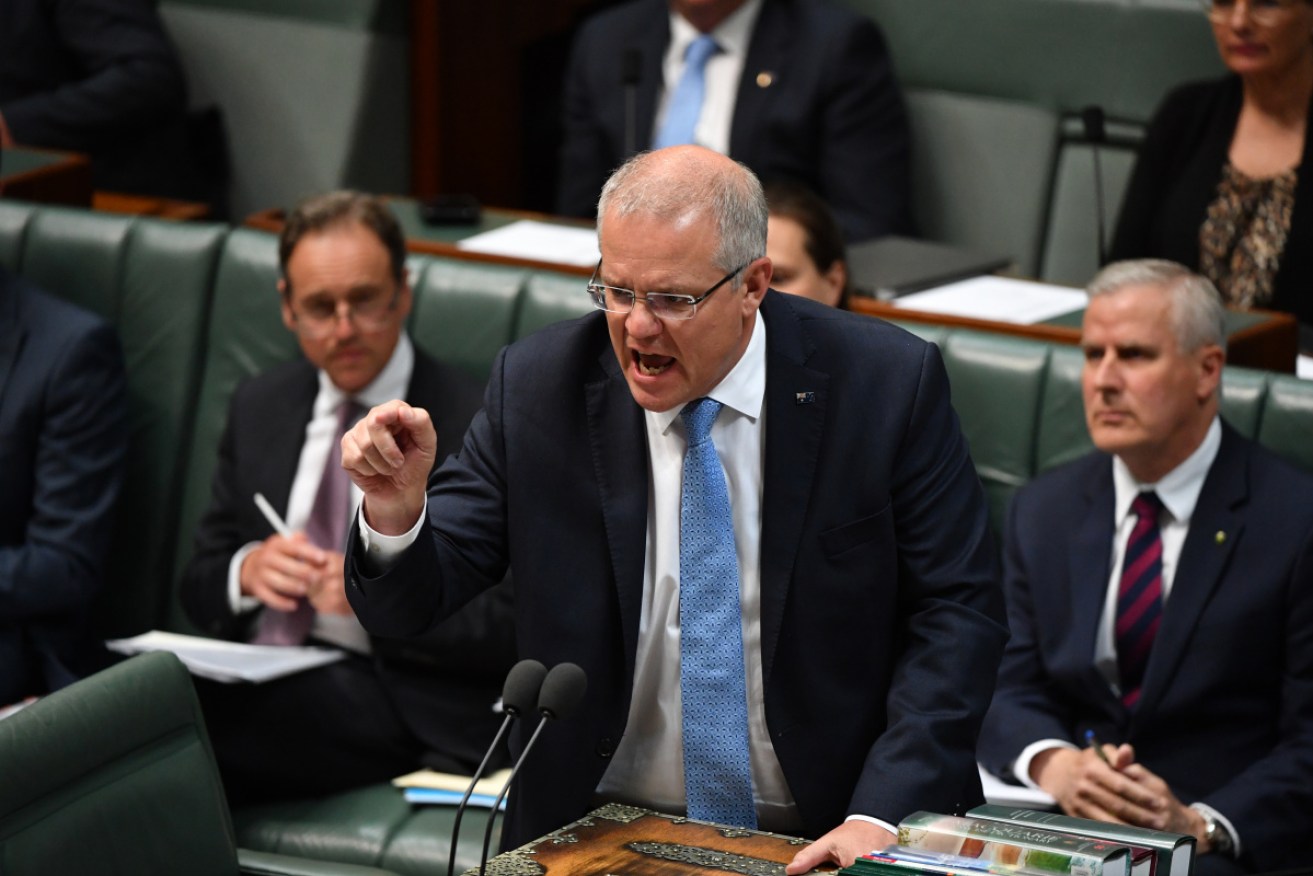Morrison tries to put the spotlight on economy and ‘cocky’ Labor, but it just isn’t working


Prime Minister Scott Morrison has criticised a 'cocky' Labor party while reiterating Liberal's success with the economy. Photo: AAP
Scott Morrison’s word for the week – “cocky”.
The Prime Minister used it at every opportunity to describe Opposition Leader Bill Shorten and his Labor team during a fiery parliamentary sitting week as he tried to deflect the growing shortcomings of his Liberal Party.
“They are very cocky, very very cocky,” Mr Morrison said in one heated clash with the opposition benches.
“The leader of the opposition has got that cocky swagger again as he is walking around.”
Mr Shorten denies such hubris, but you can’t blame him for perhaps having a spring in his step heading into next year’s federal election, after a horrendous few months for the government, much of it self-inflicted.
Aside from the ousting of yet another prime minister, there was the humiliation of losing Malcolm Turnbull’s former safe seat of Wentworth, only to be followed by the Liberals suffering an absolute hammering in last weekend’s Victorian state election.
Then to top it all, Julia Banks resigned as a federal Liberal MP this week to sit as an independent.

Ms Banks left the Liberal party due to issues with the party’s ‘reactionary right’. Photo: Getty
Alongside ‘cocky’, themes such as “budget surplus” and a “strong economy” were rolled out again and again as Mr Morrison and his Treasurer Josh Frydenberg tried to steer the debate towards their government’s economic management.
But is anyone listening? Opinion polls would suggest not with the Coalition still heading for a hefty defeat against Labor next year.
That’s despite strong growth helping to drive unemployment lower and an improving budget position allowing for tax cuts.
“People do tend to forget a tax cut very quickly,” Commonwealth Bank chief economist Michael Blythe told The New Daily.
However, he believes there is scope for further personal income tax cuts to be included in either in the mid-year budget review in the next couple of weeks or in next year’s pre-election budget.
“It’s the last roll of the dice,” he said. At the very least, he expects personal tax reductions already legislated for 2022 and 2024 can be brought forward, along with a new round of infrastructure spending.
“They have given up on tax cuts for big corporates, so all that money that would have gone on funding those is now available to do something else with,” Mr Blythe said.
Announcing the budget would be on April 2 and earlier than usual to make way for a May election, Mr Morrison said it would be a “surplus budget”.

Josh Frydenberg and Scott Morrison announce the April 2 budget. Photo: AAP
“When we were elected in 2013, we said we would get rid of the carbon tax and we did. We said we’d stop the boats and we did,” Mr Morrison told reporters.
“And we said we would bring the budget back into balance and we are.”
It wasn’t quite clear whether he was referring to the surplus in 2019/20 as predicted last May, or an early one in this 2018/19 financial year.
Economist and avid budget watcher Chris Richardson believes a surplus this financial year would be a “stretch”.
But in his respected Deloitte Access Economics Budget Monitor, Mr Richardson is anticipating a windfall of almost $10 billion from company tax receipts.
This would leave the 2018/19 budget bottom line at a deficit of $4.9 billion when Mr Frydenberg hands down the mid-year review on December 17. This would be the smallest deficit since the 2008-2009 global financial crisis.
Mr Richardson also expects the surplus flagged last May for 2019/20 will be almost double at $4.2 billion.
Mr Blythe predicts there will be further good news on the economic growth front when the national accounts for September quarter are released on Wednesday.
“The revenue has been flowing in and it is generally a good sign about the economy overall,” Mr Blythe says.
Despite some disappointing quarterly figures for construction work and business investment this week, he still expects reasonable growth contributions from government infrastructure spending and exports.
At this stage he expects the economy overall grew by 0.7 per cent in the September quarter, enough to keep the annual rate at a healthy 3.4 per cent.
“That’s still a positive signal for the labour market,” he said.
Now that’s something for the government to be cocky about, if anyone is listening.
Colin Brinsden is AAP’s former economics correspondent based in the Canberra Press Gallery.








